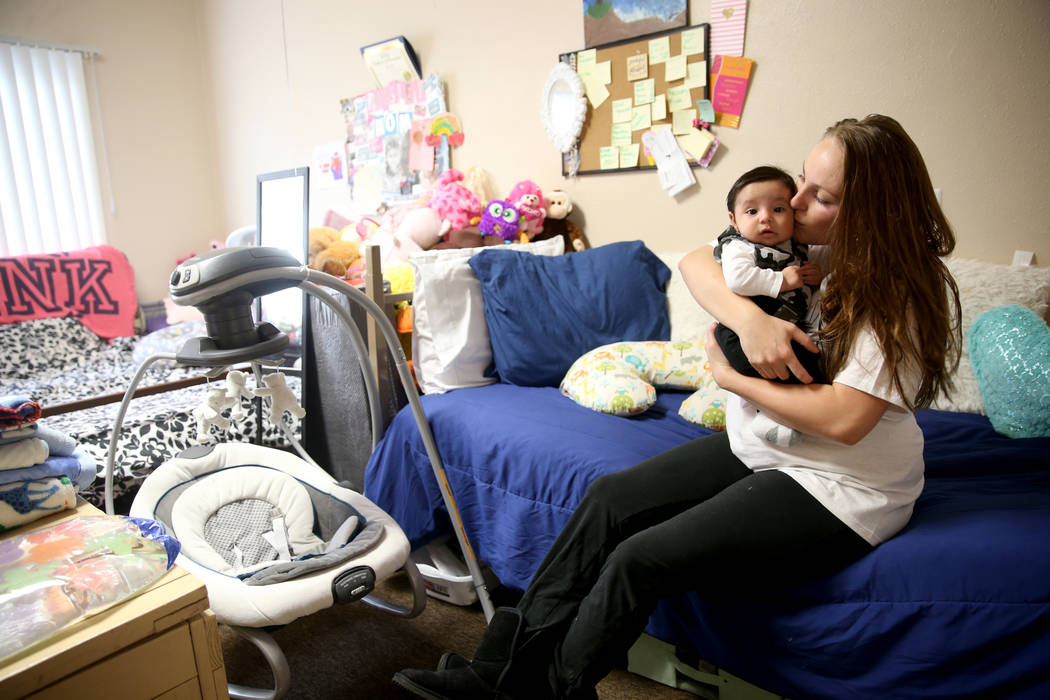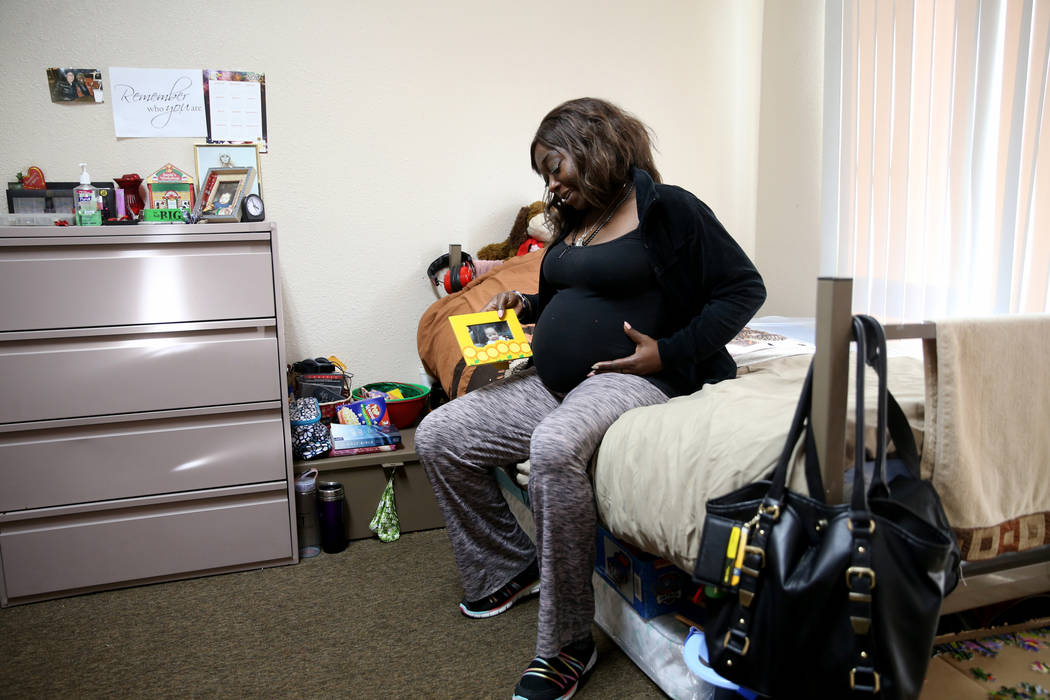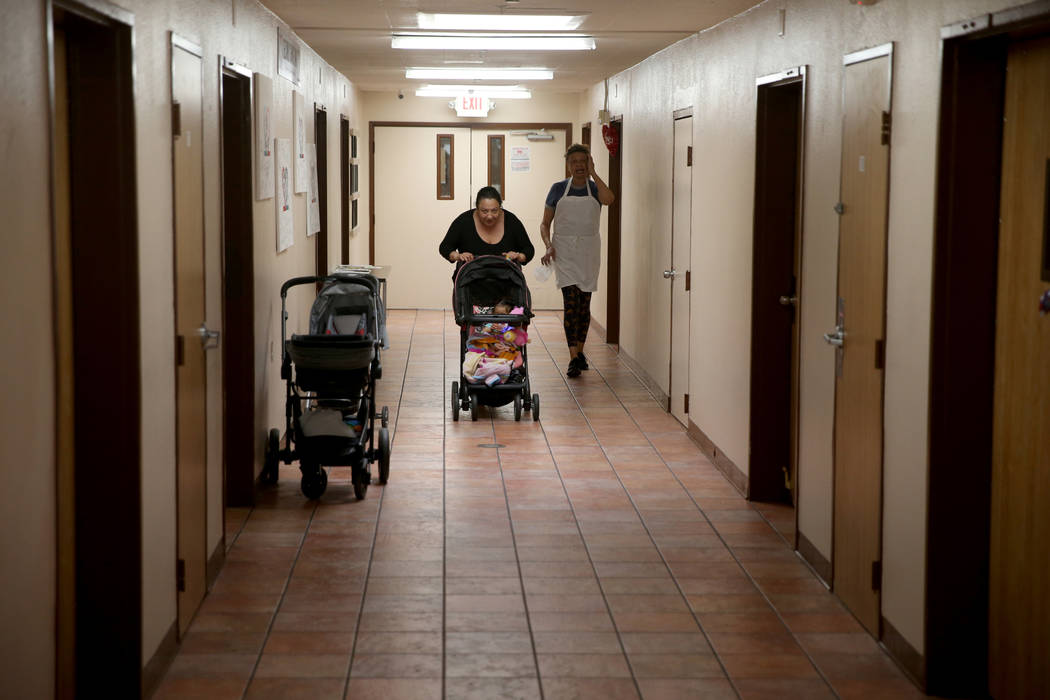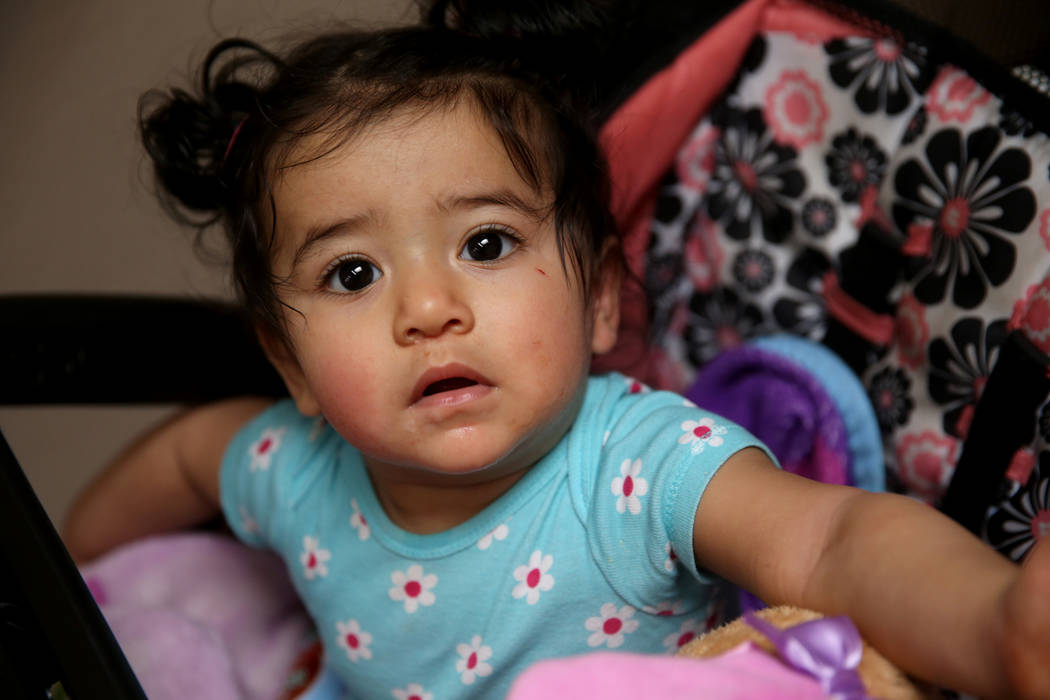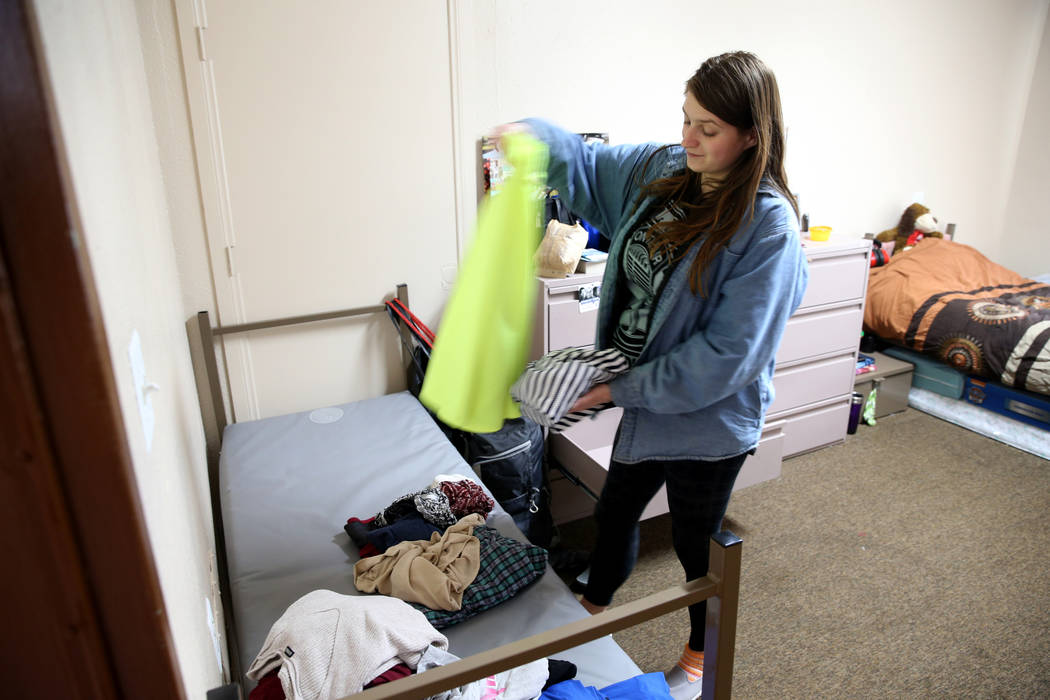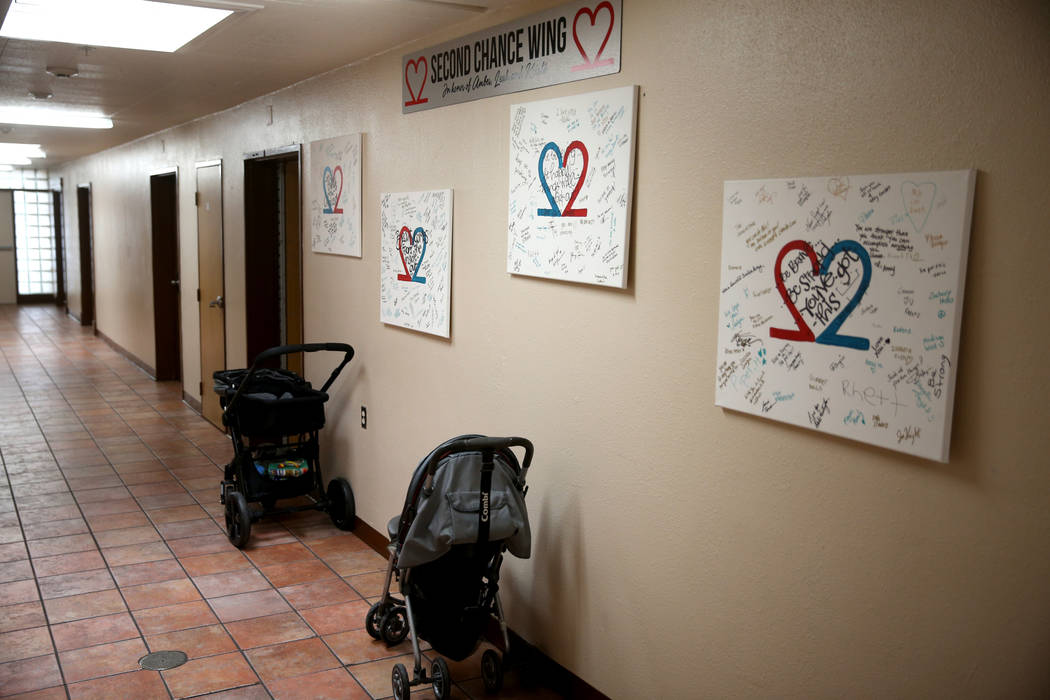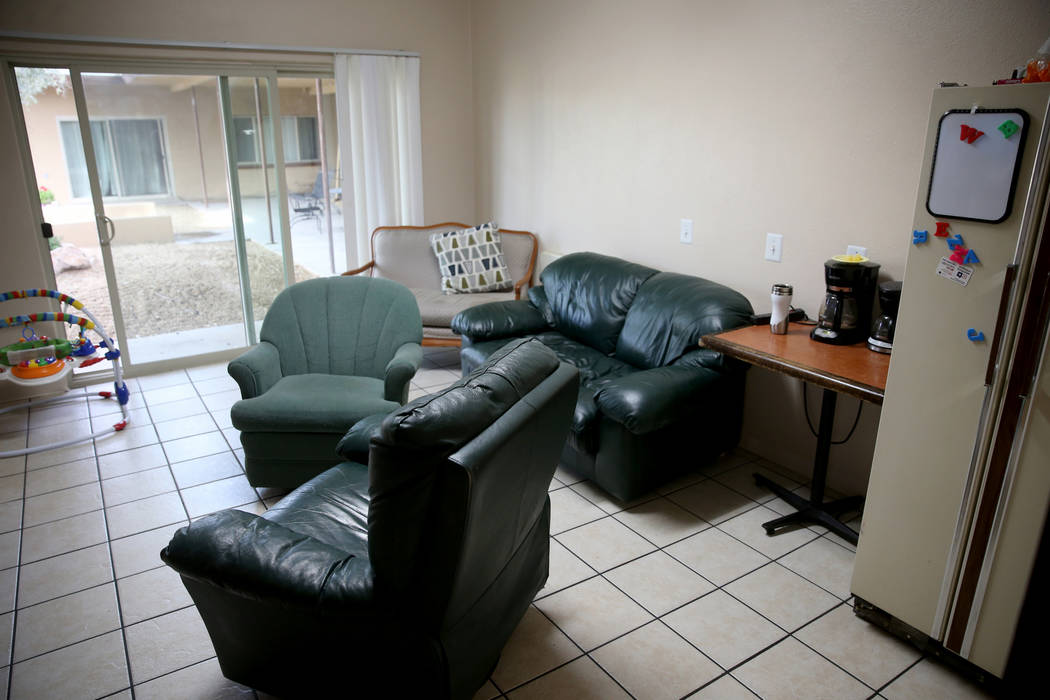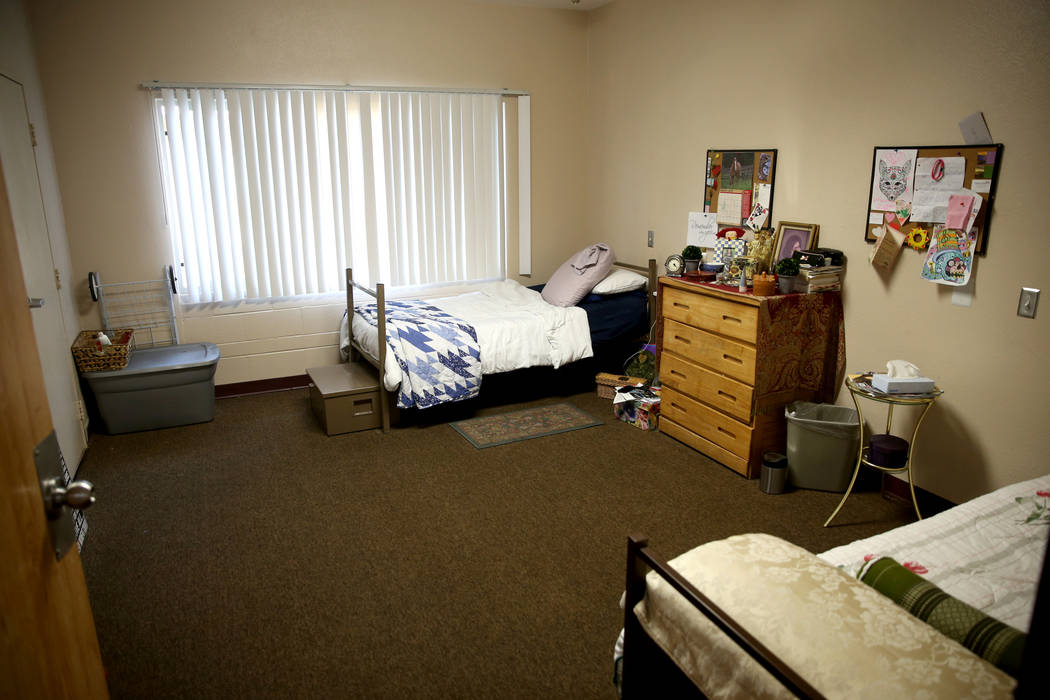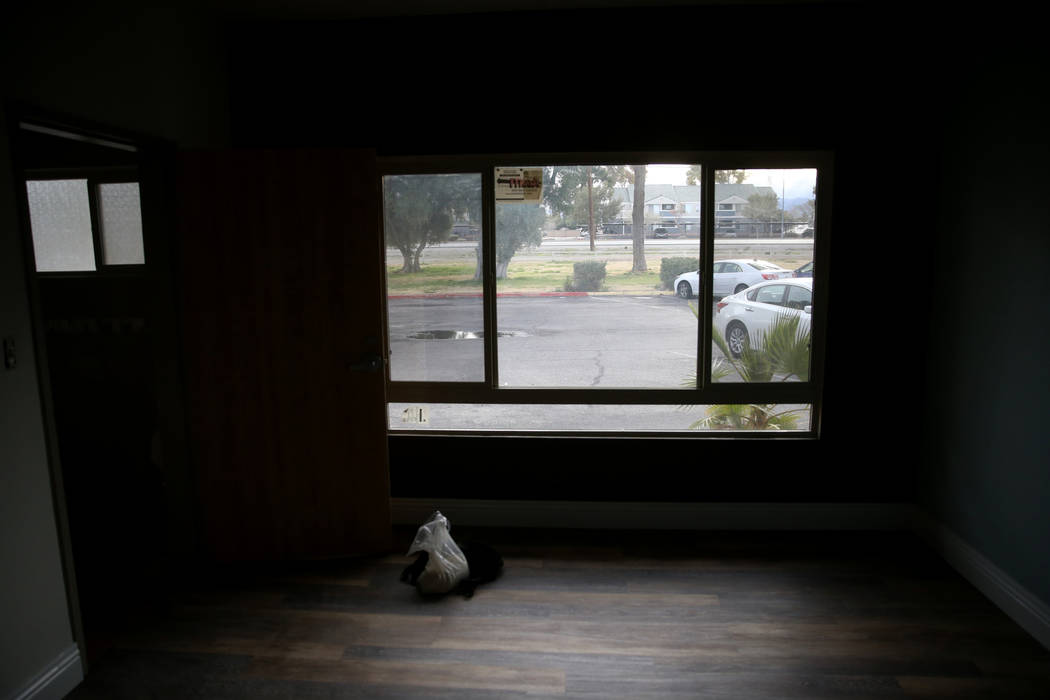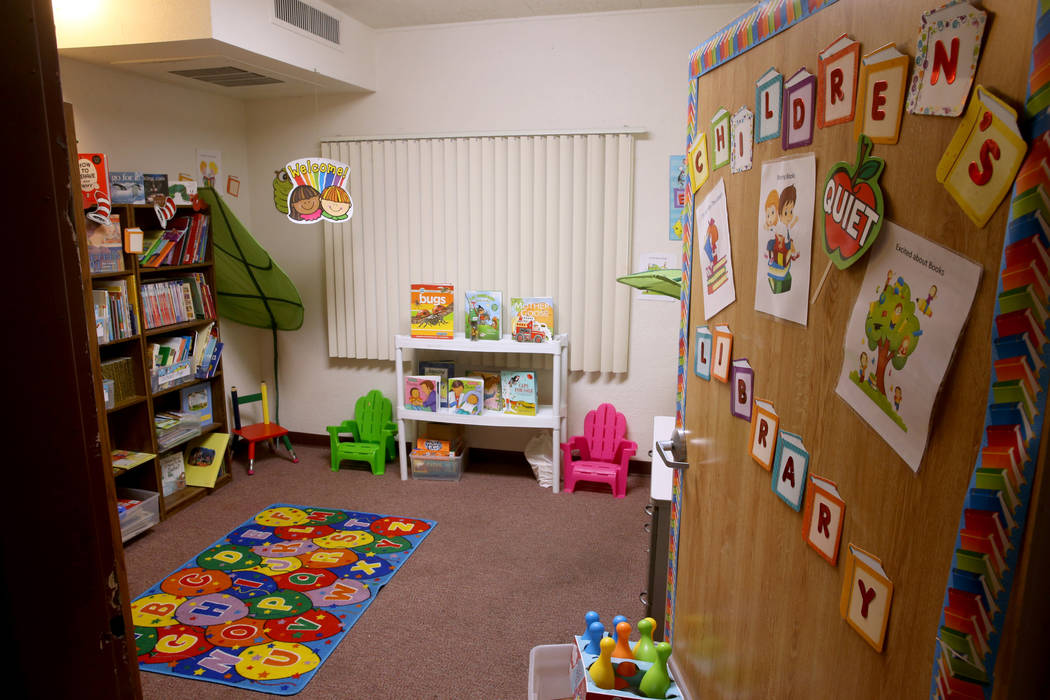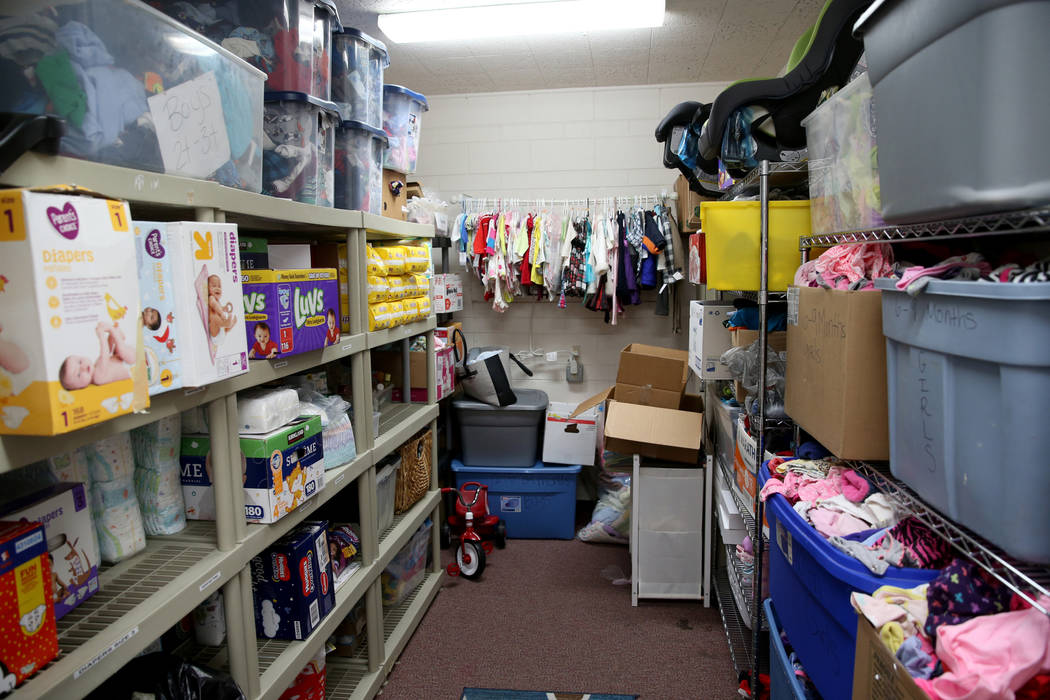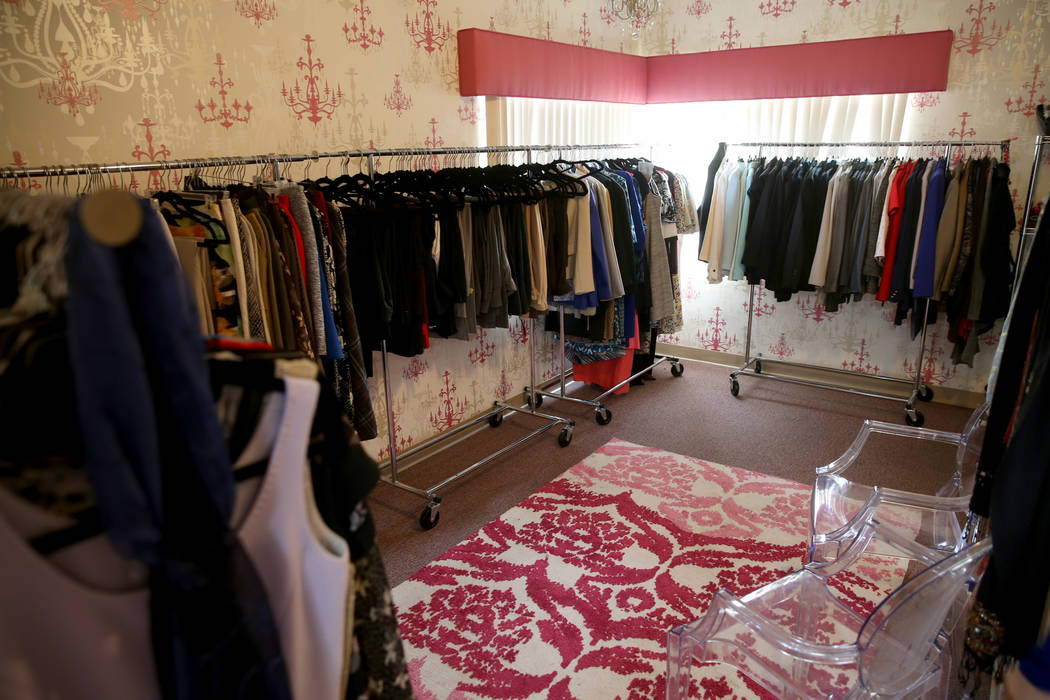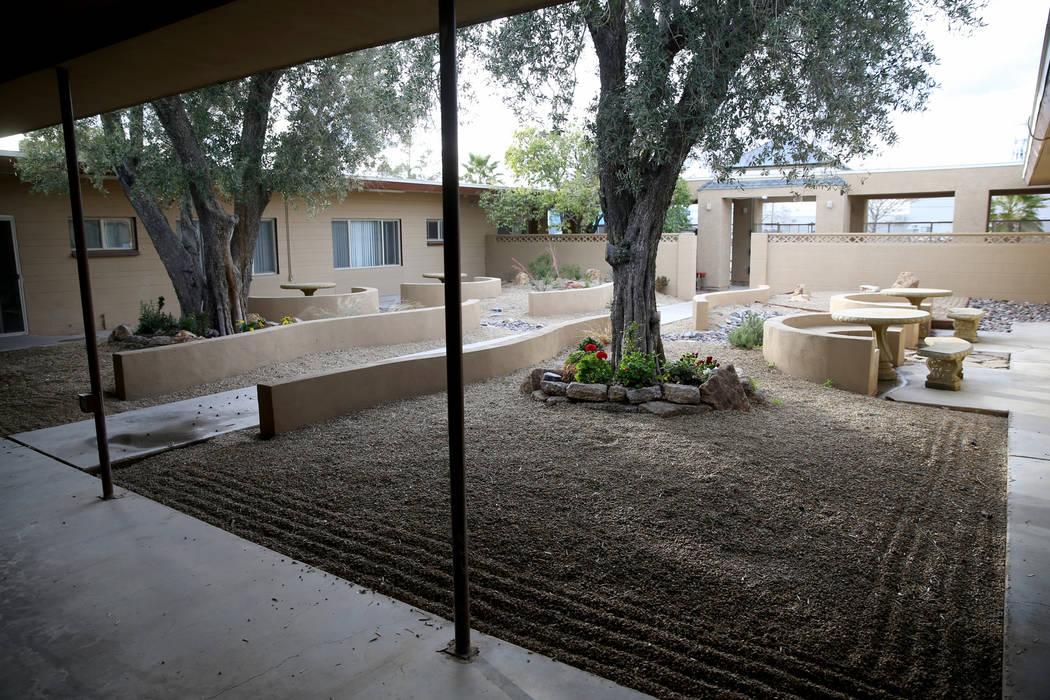Housing option helps Las Vegas moms keep kids while kicking drugs
Cynthia Constanzo celebrated her 185th day of sobriety with pink balloons in her room at the WestCare Women and Children’s Campus this week in Las Vegas. Next to her, her sleeping 3-month-old rocked gently back and forth in his motorized baby rocker.
Isaiah was born the same day Constanzo finished her 90-day inpatient drug treatment at the facility.
If not for the new transitional living space for women and children recently added to the center, Constanzo’s sleeping newborn would probably have been in the custody of Child Protective Services while his 26-year-old mother struggled to stay sober on the streets.
“I would have been homeless,” Constanzo said Wednesday. “Now, I’m able to take my transition slowly.”
WestCare Nevada added the transitional units in November and expects to complete more in the next few months. They are available to women who have completed the inpatient treatment at the behavioral health nonprofit to help them as they go through outpatient treatment, shore up their finances and prepare to secure long-term housing.
It’s the only facility of its kind in the Las Vegas Valley that accepts mothers who are getting treated for drug or alcohol dependence and have multiple children, said program director Irma Magrdichian.
The units generally house two women and their children, but women with three kids — the maximum allowed — get a unit to themselves. An adjoining bathroom also is used by occupants of the room next door.
When a woman goes to treatment, the children are usually looked after at the facility’s learning center.
Currently, 16 women and eight children are living in the transitional housing at the center at 5659 Duncan Drive, and there are more units being renovated. Five women are already on the waiting list.
WestCare Vice President Robert Henderson said the 46 new beds, which include 15 for men at its facility on 930 N. Fourth Street, filled a void in the recovery continuum.
“They come in, get detoxed, but there was no transitional option. So what do they do, step back onto the street?” he said. “I don’t think it can be dumped on their shoulders that they don’t want to change. Our community needs to link arms and try to provide additional services, transitional housing being one of them.”
Those staying in the new transitional housing live there for free if they are receiving intensive outpatient treatment. Women who receive Temporary Assistance for Needy Families (TANF) benefits also will be covered.
Clients who are not receiving social services or receiving intensive outpatient treatment can stay at a prorated rent of $375 a month while attending treatment once a week and looking for permanent housing.
The residents of the transitional housing share common experiences with one another — trials and tribulations of addiction, abuse, jail and relapse. But, they are determined that the transitional facility will keep them from repeating the cycle, Henderson said.
They also find solace in one another’s company.
Constanzo, for example, said her roommate was in the room when she gave birth. Then, when her roommate gave birth shortly after, Constanzo was there to cut the baby’s umbilical cord.
“If I didn’t have the support I have here, I would be back in the old behavior,” she said. “We are continually helping each other. Some days, I don’t think I would have made it.”
Contact Briana Erickson at berickson@reviewjournal.com or 702-387-5244. Follow @brianarerick on Twitter.



